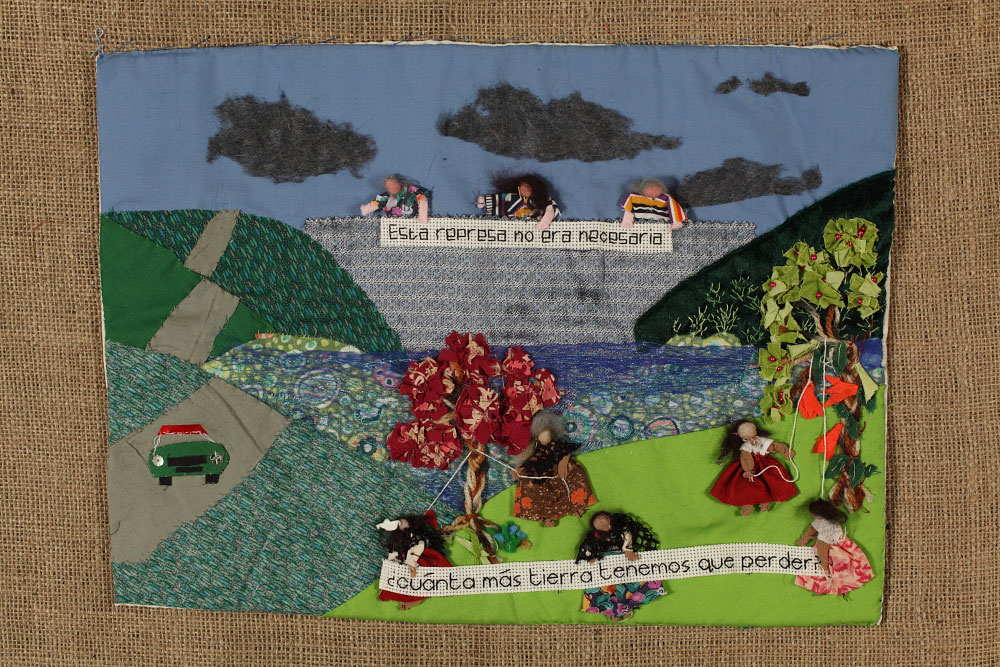Event Details

'No a la represa / No to the dam', Linda Adams. (Photo: Martin Melaugh) |
| Conference (online/hybrid): | Mapping Memory: History, Texts and Cultures |
| Description: | This international conference on Memory Studies, hosted by the Departments of English and History, Loreto College, Kolkata sought to address the following questions:
How do we represent the past to ourselves and to others?
Which of our many pasts do we represent, and when, where, and why do we change those representations?
How do those representations shape our actions, identities, and understandings?
How do individual-level processes interact with collective ones, and vice versa?
What does it mean to think about “memory” in these broad ways?
In what ways are we ethically and politically obligated to remember, and what are the consequences of forgetting or failing to meet, these obligations?
Conflict Textiles curator Roberta Bacic delivered a Plenary Session input (online) at 3.30pm Indian Standard Time / 10am UK time, 22 February 2024.
|
| Commissioned by: | Loreto College, University of Kolkata, India |
| Date(s): | 22nd February 2024 - 23rd February 2024 |
| Venue: | Loreto College, University of Kolkata, India
7 Sir William Jones Sarani, Kolkata 700071, India |
| Curator: | n/a |
| Facilitator: | Sukanya Dasgupta, Departments of English and History Loreto College, Kolkata |
| Outcome: | The 300 attendees included students, faculty members and research scholars from different institutions in Kolkata, other parts of India and from France, USA, Belgium, Belgrade, UK, Northern Ireland and Canada.
Through the range of multidisciplinary presentations by practitioners and academics, the conference
1. Explored the concept of "memory" in its broadest sense and identified new areas for growth in memory studies through knowledge sharing (for example environmental amnesia, textiles as a means of social participation, resistance and therapy)
2. Initiated attendees to learn skills through both academic and aesthetic means (through art, cinema, music, textiles etc) and taught how artistic expressions can significantly contribute to negotiating the past and how even planetary amnesia can be countered through the creative arts
3. Concluded how memories are part of a larger process of dynamic cultural negotiation involving history, literature, politics and art, which defines memories both as narratives and as fluid and mediated cultural and personal traces of the past. |
| Documents: |
• Concept note-International Conference, Feb 24 - view
• Exhibition poster, Kolkata, India, Feb. 2024 - view
• Conference programme, 22-23 Feb. 2024 - view
|
|